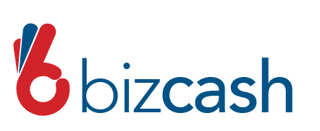
Cash flow is the lifeblood of your business. Primarily, it comes from customers or clients buying your products or services, but can also come from loans, investor capital, or interest accrued on savings and investments.
But cash isn’t just there to make your bank account look more respectable; it’s a crucial component in the growth of your business. You need cash on hand to buy stock or raw materials, pay and hire employees, and cover rent and other operating expenses.Cash flow is a natural barometer for a business. If you generate a positive cash flow, it means your business is running smoothly and you are positioned to further invest in and grow your business. Sustained negative cash flow means you are living on borrowed time.
Profits vs cash flow
Many businesses fail because they confuse the profits on their balance sheet with cash coming into the business.
Read our blog on, The Five Most Common Causes of Business Cash Flow Problems.
In terms of the strict definitions of accounting, profit can be understood as revenue minus expenses. Expenses might include inventory costs, rent or other office overheads, staff, capital expenditure, and debt service. When issuing an invoice to a customer you create revenue, but only when your customer pays and you collect the funds in your bank account do you generate cash.
Cash is what you have on hand to pay your bills at any given time. Effective management of cash flow will ultimately help to increase the profitability and sustainable growth of a business, but the two concepts are not the same.
Cashflow can be divided into two categories:
- Accounts receivable: Money owed to you e.g. by customers and clients
- Accounts payable: What you owe to others e.g. your suppliers
When cash coming into your business through accounts receivable exceeds the amount of cash going out of your business through accounts payable, this is a sign of healthy levels of working capital. But when the tide turns, and your receivables begin to subside while your payables rise, then your business can find itself in trouble.
Who is most susceptible to cash flow problems?
- A new business
New businesses are particularly vulnerable. When you are just starting out, you may have considerable start-up expenses, and at the same time, few established customers or consistent sales bringing money in. You may need a cash injection from a lending institution to help you establish positive cash flow at this challenging time.
Read our blog on, The array of alternatives available to businesses needing fast finance.
- A seasonal business
Consistent, positive cash flow can also be difficult for seasonal businesses – those whose business fluctuates depending on the time of year (those in the tourism or hospitality industries, for example, or a manufacturer of umbrellas). Managing cash flow in this type of business is tricky, but it can be done, with the right focus and attention.
- A small business
Lack of cash is one of the biggest reasons small businesses fail. Larger organisations tend to have higher capital buffers, but Small and Medium and Micro Enterprises (SMMEs) operate on much finer margins, and are more vulnerable to subtle shifts in cashflow.
Cashflow in South Africa
The problem of cashflow constraints is especially common in South Africa. Over the last 15 years approximately 70% to 80 % of South Africa Small and Medium and Micro Enterprises (SMMEs) have failed within five years of opening their doors.
Analysts have identified a number of factors, including a lack of business experience and an inability to access finance – but chief among them is an incapacity to manage business cashflow. The National Small Business Chamber (NSBC), in a 2015 survey of the 18 500 small businesses in South Africa, revealed that 57% of SMMEs believe a lack of funding and insufficient cashflow to be the biggest threat to their business (with low sales following closely behind at 52%).
“What we see is people entering the marketplace with great business models and wonderful ideas but lacking the knowledge to effectively manage cash flowing in and out of the business,” says Elton Bondi, Director of Bizcash, which helps businesses ease cashflow by converting their customer invoices into cash.
“Failing to plan correctly and manage budgets inevitably leads to errors and ultimately business failure – hence why a healthy cash flow is so important for your business growth”





 Proudly financed by Reichmans Capital -
Proudly financed by Reichmans Capital -